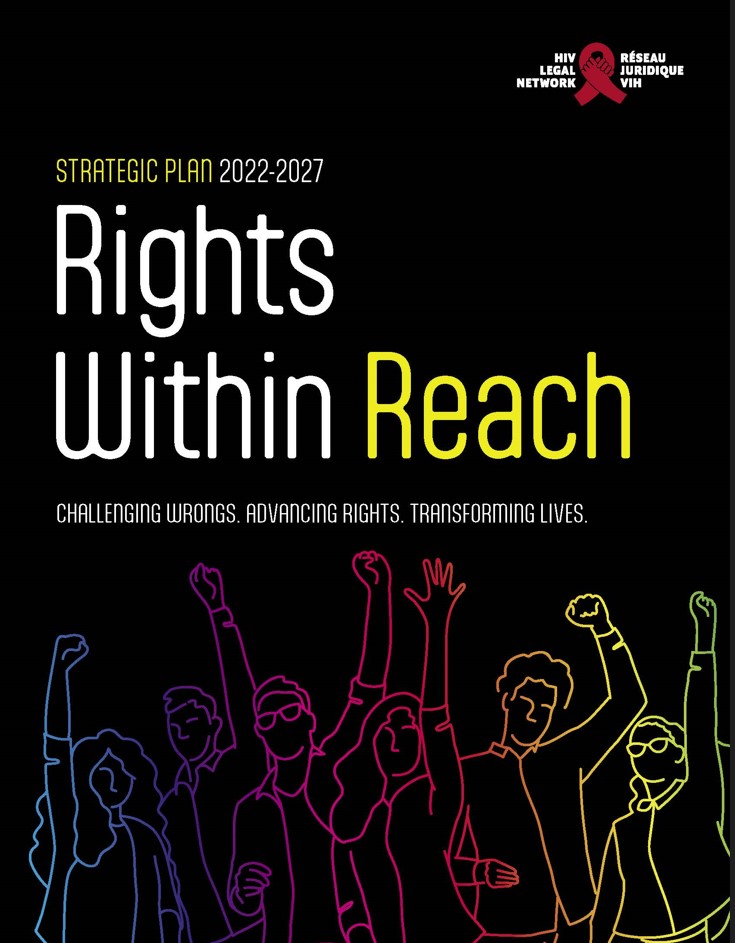Overview
HIV testing raises numerous human rights issues. When a test for HIV was first developed, there were calls for compulsory testing and quarantine of those testing positive. Ever since, political, technological and medical developments in testing for HIV and treating HIV infection have continued to raise serious legal and ethical questions.
Human rights law requires that HIV testing include:
- informed consent;
- pre- and post-test counselling; and
- guaranteed confidentiality of test results.
These elements are crucial to the success of HIV testing as a public health measure to reduce HIV transmission and to provide care, treatment and support for people who test HIV-positive.
We work on numerous legal and human rights dimensions of HIV testing, including:
- access to anonymous HIV testing;
- HIV testing and immigration policy;
- rapid HIV testing;
- home testing for HIV and access to HIV testing outside health care settings;
- testing within Aboriginal communities in Canada;
- routine testing of women during pregnancy and testing of newborns;
- testing of specific populations such as prisoners, sex workers, military personnel; and
- forced testing in instances of occupational or non-occupational exposure to HIV.
Learn more:
2025 Election Candidate Questions – Response from the Bloc Québécois
On Friday, April 11, the HIV Legal Network wrote to the party leaders in the Canadian Federal election with key questions on their party’s positions on issues related to HIV, human rights, and the law. Download the response from the Bloc Québécois, received on April 16, 2025 (French only):
2025 Election Candidate Questions – Response from the Green Party of Canada
On Friday, April 11, the HIV Legal Network wrote to the party leaders in the Canadian Federal election with key questions on their party’s positions on issues related to HIV, human rights, and the law. Download the response from the Green Party of Canada, received on April 22, 2025:
Statement: A human rights–based approach to HIV self-testing
HIV self-testing is a powerful tool, particularly if delivered through an approach that meets people where they are. Making self-tests available can promote uptake by offering people privacy, independence, and control as they decide when and where to take an HIV test. By increasing access and empowering individuals, HIV self-testing is an innovative way to … Read more

Rights Within Reach: Strategic Plan 2022-2027
The HIV Legal Network promotes the human rights of people living with HIV or AIDS and other populations disproportionately affected by HIV and criminalization, in Canada and internationally. In 2021, we undertook a planning process that would shape the strategic goals and priorities for the organization’s next five years (2022-2027). To do this, we sought … Read more
Respect, Protect, Fulfill: Supporting the HIV Legal Network
Respect. Protect. Fulfill. You can help challenge wrongs, advance rights, and transform lives. Denied basic healthcare. Criminalized and vilified for love. Unfairly targeted by police. These abuses, and more, are too often the experience of people living with HIV and of communities affected by HIV. At the HIV Legal Network, our mission has always been … Read more
Canada Must Take a Human Rights-Based Approach to HIV Self-Testing
On International Testing Week, more than 40 organizations from across Canada sign statement of support This statement can be attributed to the HIV Legal Network, HIV & AIDS Legal Clinic Ontario and the Canadian AIDS Society. Toronto, ON (November 23, 2023) – Today, more than 40 health and human rights organizations across the country have … Read more
PRESS RELEASE: The Missing Millions, the Government of Canada and HIV
As community organizations are closing, the federal government presides over the continued steady erosion of federal HIV funding, with $104 million in funds lost from the response.

